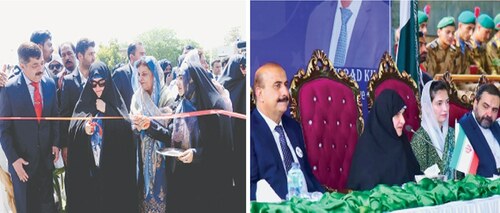ISLAMABAD: A pilot project will begin in Shah Allah Ditta next month under which localised evidence will be used to prepare disease control priorities and introduce a health system for the public.
According to Ministry of National Health Services (NHS) Director General Dr Asad Hafeez, this will make Pakistan the first country in the world to use localised evidence to prepare disease control priorities.
After it is initiated in Shah Allah Ditta, the project will be extended across the capital next year and provinces will be encouraged to follow Islamabad.
Dr Hafeez said that a Disease Control Priorities List (DCPL) was prepared after nearly eight years of research by an institution in the United States.
The list was then improved and the DCPL-III – which includes more than 200 services and facilities – was finalised.
Pilot project to begin in Shah Allah Ditta next month
“It suggests that every health facility should have certain health services and they should be displayed in hospitals. It also suggested providing services through health facilities divided into five categories,” he said.
He added that the DCPL also carried out the costing of various treatments, which will make it possible for the government to include services at basic health units (BHU) according to the funding available.
“Let’s say if we decide to provide 30 services at 16 BHUs in the capital but we lack funds, we will exclude some services and include some if we get more funding,” he said.
In response to a question, Dr Hafeez said the decision to launch the projectwas made in January this year during a visit of the World Health Organisation director general to Islamabad.
“Categories will be made on the basis of communicable diseases, non-communicable diseases, etc. It has also been decided that BHUs will also map environmental services, for instance to identify clean drinking water,” he said.
The second part of the DCPL will introduce an integrated system of health facilities, he said.
“We have registered as many as 8,000 residents of Shah Allah Ditta and special registration numbers have been allotted to them, due to which in the future whenever they visit the hospital their medical history will be available to the doctor,” he said.
By 2020, this system will be made functional across the capital.
According to a statement, the Ministry of NHS in partnership with provincial and area health departments, the Disease Control Priorities III Secretariat at the London School of Hygiene and Tropical Medicine (LSHTM), WHO and others is finalising an evidence-based universal health coverage benefit package for Pakistan.
National discourse to develop and implement the universal health coverage benefit package began in Islamabad on Monday to review localised scientific evidence on cost-effectiveness and the burden of diseases in Pakistan and use the information to prioritise health interventions for essential health services, it said.
At the inaugural session, Special Adviser to the Prime Minister on NHS Dr Zafar Mirza said: “Pakistan is the first country in the world to use localised evidence on Disease Control Priorities III and Burden of Disease to develop an essential package of health services/universal health coerage benefit package of Pakistan.”
In partnership with the WHO, the DCP-III Secretariat provides technical support to the government of Pakistan through the LSHTM, Radboud University, Aga Khan University and Health Services Academy to assist the development of Pakistan’s universal health coverage benefit package.
Professor Anna Vassal from the LSHTM said: “Based on disease burden in Pakistan and considering cost-effectiveness of different health interventions, scientific tools are being used to produce a health package at different levels of health care delivery system in Pakistan. The government in Pakistan can optimise the health package by adjusting total budget, financial risk protection and equity weight.”
Published in Dawn, November 26th, 2019














































Dear visitor, the comments section is undergoing an overhaul and will return soon.